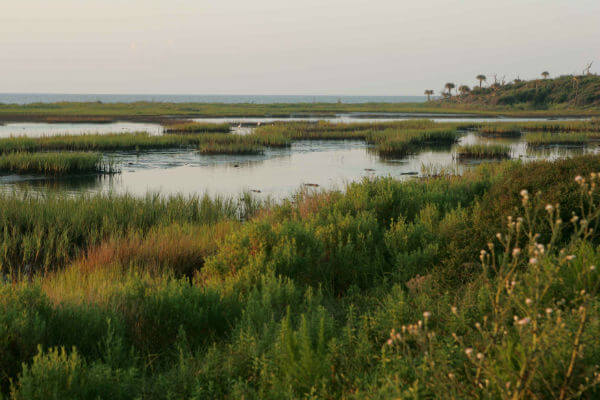Der Spiegel reports: This may be the only thing you need to know about the situation in Libya: For security reasons, the headquarters of the United Nations Special Representative for Libya is situated 500 kilometers (311 miles) away from Tripoli in the Tunisian capital of Tunis. Martin Kobler’s office is located in a non-descript building in the city’s Les Berges du Lac diplomatic quarter.
For trips to Libya, he has an 18-seat propeller plane at his disposal, parked at the nearby airport. He uses it to commute several times each month to Libya. But sometimes, he isn’t given permission to land, for no apparent reason. On such occasions, the plane remains grounded, along with Kobler, in Tunis.
On a recent Sunday in April, Kobler has invited us to a meal in the restaurant Au Bon Vieux Temps in a posh suburb of Tunis. The view of the Mediterranean is spectacular. A slight man with a warm glint in his eyes, Kobler, 63, was once chief of staff to former German Foreign Minister Joschka Fischer. He has also served as German ambassador to Cairo and Iraq and, most recently, as the UN special representative to the Democratic Republic of Congo.
Today he has one of the most difficult jobs in the world. His task is to help create a state out of Libya at the behest of the international community. The fact that Libya was never truly a state, even under dictator Muammar Gadhafi, who was toppled in 2011, doesn’t make things any easier. Considering what he’s up against, Kobler is pursuing his mission with astounding optimism.
The situation in Libya is important for Europe for two reasons. First, because Islamic State (IS) is continuing to spread unhindered in the civil war-torn country. Second, because one of the most important routes for migrants making their way to Europe runs through Libya. [Continue reading…]
The New York Times reports: The United States on Tuesday imposed sanctions on a prominent Libyan politician as part of a broader Western effort to force Libya’s warring factions to accept the authority of a unity government backed by the United Nations.
The Treasury Department said it was adding the politician, Khalifa al-Ghweil, the leader of a self-declared government in the capital, Tripoli, to its sanctions list and would freeze any assets he might have in the United States.
The sanctions are a boost to the new unity government, which was formed under the auspices of the United Nations in December, has strong support from Western countries that are desperate to end years of turmoil in Libya. It also enjoys the allegiance of Libya’s national oil company, the central bank and some of the militias that guard the country’s oil fields. [Continue reading…]
The Guardian reports: The United Nations envoy to Libya, Martin Kobler, has called for western forces to help combat Islamic State in partnership with the country’s new government.
With Barack Obama due to meet four European leaders in Germany on Monday for a summit that is likely to focus on Libya, Kobler said foreign powers should offer training and military support, combined with an end to the UN arms embargo.
“The Daesh [Isis] expansion can only be stopped militarily,” he said. “There is a consensus that a united Libyan army needs training; the lifting of the weapons embargo is very important. We need the most modern weapons to finish Daesh.”
Isis has been stepping up its offensive against Libya’s oilfields. An assessment circulating in foreign missions reports that in the last two weeks the group has broken out of its base in the coastal town of Sirte in three thrusts. [Continue reading…]


